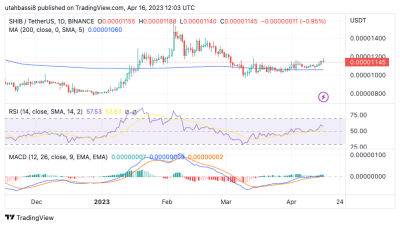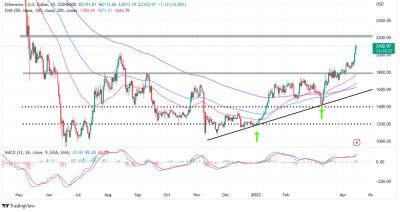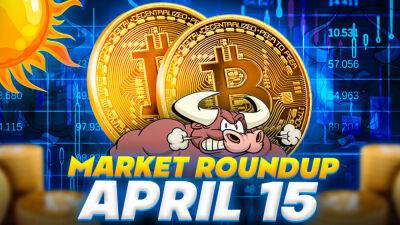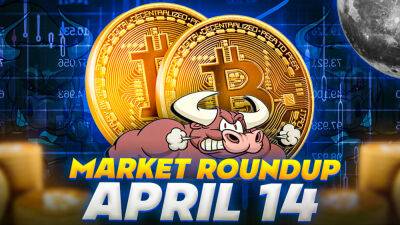Bitcoin Price Prediction as US Core Inflation Data is Released – Bear Market Over?
The cryptocurrency market has been factoring in the recently released US CPI figures, which have underperformed expectations. Many speculate on how this crucial economic indicator will impact Bitcoin's price trajectory.
In this article, we will delve into the potential implications of the inflation report on Bitcoin's price, evaluating various factors that may contribute to an upswing or a continued downturn in the digital currency's value.
US consumer price increases slowed down in March compared to the high levels seen last summer. According to the Bureau of Labor Statistics, annual inflation measured by the Consumer Price Index fell for the ninth consecutive month.
For the 12 months ending in March, prices rose by 5%, a decrease from the 6% recorded in February, marking the smallest year-over-year increase since May 2021.
On a monthly basis, the CPI, which tracks price changes for a basket of goods over time, experienced a modest 0.1% uptick from February, compared to the previous increase of 0.4%.
Following the release of a virtually in-line inflation report, yields have dropped while Nasdaq futures have experienced an uptick.
This market response indicates that investors were concerned about a potential upside surprise, and are relieved that the results are largely in accordance with expectations.
Bitcoin (BTC), the world's most valuable cryptocurrency, has performed exceptionally well and gained tremendous traction, reaching the $30,000 mark On Tuesday. Although, the upticks in Bitcoin appear to be fading slightly, as it fell below the $30,000 barrier early Wednesday morning.
Meanwhile, Ethereum, the second most valuable cryptocurrency, declined more than 2 percent to $1,885, with a market value of $228.3 billion.
However
Read more on cryptonews.com














